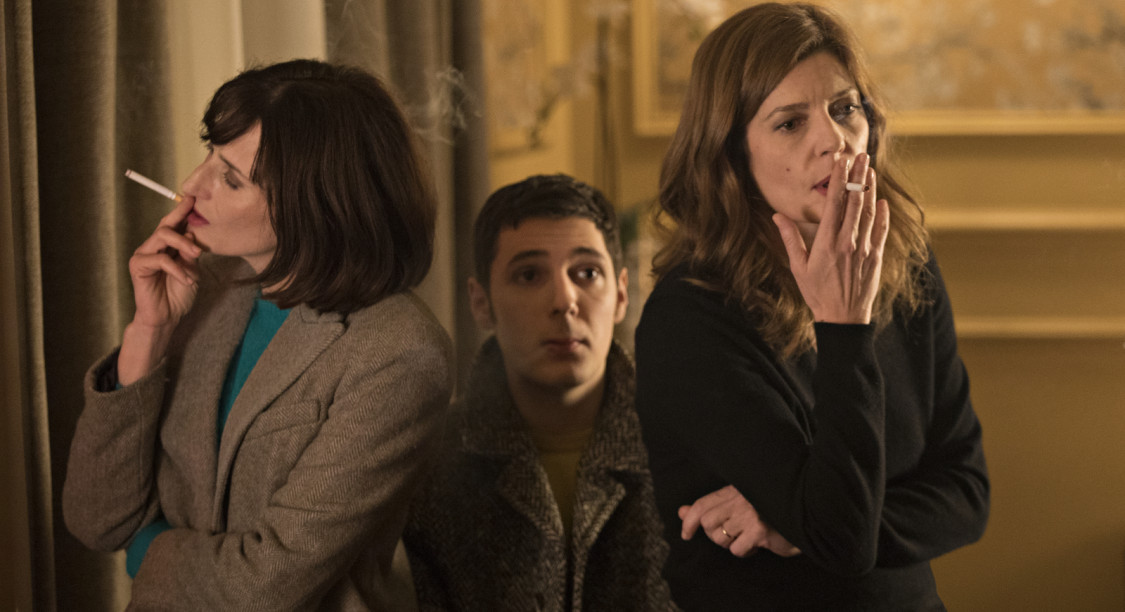
- Golden Globe Awards
On a Magical Night (France)
After ending a fling with a student half her age, Maria, a 40-something law professor (an effervescent Chiara Mastroianni) suddenly confesses a long history of affairs to Richard (Benjamin Biolay), her husband of twenty years. Moving out of the family apartment, she settles in room 212 (the movie’s original French title) at a hotel just across the street in the Paris Montparnasse district. During the night, she starts reflecting on her life, asking herself if she made the right decision as she is revisited by the many ghosts of her yesteryears. Richard as a twenty-year-old (Vincent Lacoste), a string of former lovers, her now-deceased mother… All of them coming back to comment on her decision and past actions as she tries to justify herself.Following last year’s gay melodrama Sorry Angel, prolific writer-director Christophe Honoré’s On a Magical Night explores marriage in crisis, usually a dour subject, which he nevertheless imbues with entertaining exuberance and a feel-good Frank Capra-esque vibe and echoes the narrative of Dickens’s A Christmas Carol. Past and present colliding as a potent cocktail in a joyous marital vaudeville from an auteur-director often labeled as heir to the French New Wave.“My last film was very personal and very painful to make, as it dealt with a period of my life in the nineties, AIDS and the many friends I lost, so I wanted to tackle a lighter theme because my goal now is to be a happy filmmaker,” he explains. “It’s my twelfth film and I am also approaching fifty, an age where you start thinking about how you keep love alive long-term. It’s a subject running through a lot of films, especially within the type of cinema that I really like – couples you see in the works of Rossellini, Woody Allen, Ingmar Bergman. I often make movies about encounters, but rarely about couples who are already living together and so it was something that attracted me.”Honoré wrote the film especially for Chiara Mastroianni, having previously worked with her four times. “I imagined her as a Cary Grant-type character,” he says. “I found that particular form of acting, which is very precise and highly amusing, suited her well. As a film lover, I’ve been hugely influenced by American comedies on the subject of remarriage, like those of Leo McCarey and George Cukor. I tried to create a crossover between these films and those with more of a French feel about them, like the very old-fashioned Sacha Guitry’s comedies, and also those of Alain Resnais, who was a great admirer of what we call the French boulevard theater.”No wonder he sees the film as a direct prolongation of his work as a playwright which spurred a deliberate theatrical approach for the film. “I wanted to escape French naturalism and use very stylized dialogues.”For her role, Mastroianni was awarded the best actress prize of the Un Certain Regard section at the last Cannes Festival. She dedicated the award to Honoré, crediting him for “always giving me parts at a time I am doubting myself and motivating me to want to act again. I love working with him because he always manages to find in me things I am not conscious of. I trust him totally and it’s absolute dream cooperation between us.”